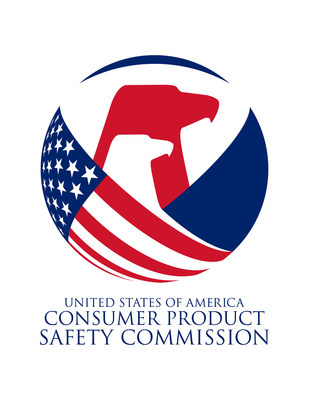Trying to Reason with Hurricane Season: CPSC Tips to Keep Americans Safe
WASHINGTON, May 21, 2025 /PRNewswire/ -- June 1 marks the start of the 2025 Atlantic hurricane season. The U.S. Consumer Product Safety Commission (CPSC) is warning consumers along the Atlantic Seaboard and the Gulf of America about the increased risk of carbon monoxide (CO) poisoning, fires and electric shock after hurricanes and severe storms hit.
"These storms bring along with them power, devastation and destruction of their own," said CPSC Acting Chairman Peter Feldman. "However, the dangers associated with these storms do not end when the winds and rain subside. I urge all Americans to follow CPSC's safety tips this hurricane season to do their best to be safe before, during and after the storms."
Consumers need to be especially careful when storms knock out electrical power. CO poisoning from portable generators can kill whole families in minutes. CO is called the invisible killer because it is colorless and odorless, and its poisoning can happen in only a matter of minutes. Sadly, people can become unconscious even before recognizing symptoms of nausea, dizziness or weakness.
Unfortunately, CO poisoning claims the lives of hundreds of people each year. When we see these deaths occur from generators when the power is out, it makes the storm's effects that much more devastating. To mitigate their risk of CO poisoning, consumers should follow these safety tips to protect their families, especially during the Atlantic hurricane season lasting from the beginning of June to the end of November.
Loss of Power—Using a Generator Safely
- NEVER use a portable generator inside a home, garage, basement, crawlspace, shed or other enclosed spaces, even with the doors open. Opening doors or windows will not provide enough ventilation to prevent the buildup of lethal levels of CO.
- Use portable generators outside only, at least 20 feet away from home and any other buildings. Don't use a generator on a porch or in a carport; it's too close to your home and puts your family at risk of CO poisoning. Direct the generator's exhaust away from your home and other buildings where someone can enter. Close windows and seal off vent openings that are near the generator or in the path of its exhaust.
- Follow portable generator instructions about electrical shock hazards in inclement weather. These instructions may include use of an NFPA-rated non-combustible generator tent or may state to wait to use until rain passes.
- Regularly check and maintain your portable generator to ensure that it will work properly when needed. Read and follow all labels, instructions and warnings on the generator and in the owner's manual.
- Look for portable generators that have a CO shut-off safety feature. This safety feature automatically shuts off the generator when high levels of CO are present around the generator. Models that are certified to the latest PGMA G300-2023 and UL 2201 safety standards are estimated to reduce deaths from CO poisoning by 86% and 100% respectively.
- UL 2201 certified models have reduced CO emissions in addition to the CO shut-off feature.
Check CO and Smoke Alarms
- Working smoke and CO alarms save lives! Install working CO and smoke alarms (battery-operated or with battery backup) on every level and outside sleeping areas at home. Interconnected alarms are best; when one sounds, they all sound.
- Make sure smoke alarms are installed inside each bedroom.
- Test CO and smoke alarms monthly to make sure they are working properly, and replace batteries, if needed. Never ignore an alarm when it sounds. Get outside immediately. Then call 911.
Dangers with Charcoal and Candles
- Never use charcoal indoors. Burning charcoal in an enclosed space can produce lethal levels of carbon monoxide. Do not cook on a charcoal grill in a garage, even with the garage door open.
- Use caution when burning candles. Use flashlights or battery-operated candles instead. If using candles, do not burn them on or near anything that can catch fire. Never leave burning candles unattended. Extinguish candles when leaving the room and before sleeping.
If Your Home Floods—Dangers with Wet Appliances
- Look for signs that your appliances have gotten wet. Do not touch wet appliances that are still plugged into an electrical source.
- Before using your appliances, have a professional gas or electric company representative evaluate your home and replace all gas control valves, electrical wiring, circuit breakers, and fuses that have been under water.
Dangers with Gas Leaks:
- If you smell or hear gas leaking, leave your home immediately and contact local gas authorities from outside the home. Do not operate any electronics, such as lights or phones, before leaving.
CPSC resources:
PSA - One portable generator produces the same amount of Carbon Monoxide as hundreds of cars
PSA - Una planta eléctrica produce la misma cantidad de monóxido de carbono como cientos de autos
Link to broadcast quality video for media:
Hurricane B-Roll - https://spaces.hightail.com/space/XtFQ7YqK0x
Individual Commissioners may have statements related to this topic. Please visit www.cpsc.gov/commissioners to search for statements related to this or other topics.
About the U.S. CPSC
The U.S. Consumer Product Safety Commission (CPSC) is charged with protecting the public from unreasonable risk of injury associated with the use of thousands of types of consumer products. Deaths, injuries, and property damage from consumer product-related incidents cost the nation more than $1 trillion annually. Since the CPSC was established more than 50 years ago, it has worked to ensure the safety of consumer products, which has contributed to a decline in injuries associated with these products.
Federal law prohibits any person from selling products subject to a Commission ordered recall or a voluntary recall undertaken in consultation with the CPSC.
For lifesaving information:
- Visit CPSC.gov.
- Sign up to receive our e-mail alerts.
- Follow us on Facebook, Instagram, X, BlueSky, Threads, LinkedIn and Truth Social.
- Report a dangerous product or a product-related injury on www.SaferProducts.gov.
- Call CPSC's Hotline at 800-638-2772 (TTY 800-638-8270).
- Contact a media specialist.
Release Number: 25-289
![]() View original content to download multimedia:https://www.prnewswire.com/news-releases/trying-to-reason-with-hurricane-season-cpsc-tips-to-keep-americans-safe-302461893.html
View original content to download multimedia:https://www.prnewswire.com/news-releases/trying-to-reason-with-hurricane-season-cpsc-tips-to-keep-americans-safe-302461893.html
SOURCE U.S. Consumer Product Safety Commission


